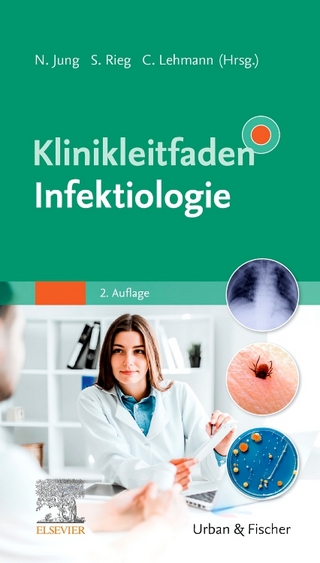
Nucleic Acids in Immunology
Springer-Verlag Berlin and Heidelberg GmbH & Co. K
978-3-540-04290-7 (ISBN)
- Titel ist leider vergriffen;
keine Neuauflage - Artikel merken
Side by side with this development was the almost explosive development of new experimental approaches and new ideas pertaining to the problem of antibody formation. Nucleic acids in their various forms were recognized as playing an expected major role in the activation of antibody-forming cells. Perhaps less to be expected was the role they can playas non-specific stimulators of antibody formation.
Oligo- and Polynucleotides as Haptens (Part I).- Reading the Helix Backwards.- Methylated Bovine Serum Albumin as a Carrier for Oligo- and Poly-Nucleotides.- The Production of Antibodies to Mononucleotides, Oligonucleotides, and DNA.- Specific Antibodies to Polynucleotide Complexes and Their Reaction with Nucleic Acids: Importance of the Secondary Structure of the Antigen.- Specificity in the Reaction Between Anti-Pyrimidine Nucleoside Antibodies and DNA.- Antibodies to the Terminal Moieties of Guanine Mononucleotides and Guanine-Containing Dinucleotides.- Discussion.- Oligo- and Polynucleotides as Haptens (Part II).- Formation and Isolation of Antibodies Specific for Nucleotides.- The Reaction of Anti-Deoxyribonucleic Acid Sera with Nucleoside and Nucleotide Conjugates.- The Various Types of DNA Antibodies in Lupus Sera.- DNA and Nucleoprotein Determinants for Systemic Lupus Erythematosus Sera.- Cellular Phases of the Immune Response Following Immunization with Mammalian and Bacterial Ribosomes.- Discussion.- Use of Nucleic Acid-Specific Antibodies.- Immunological Evidence for the Existence of Thymine Dimers in Ultraviolet Irradiated DNA.- Immunological Evidence for the Identity of a Photoproduct Formed During Photooxidation of DNA with Methylene Blue, Rose Bengal, Thionin and Acridine Orange.- Use of Anti-RNA Antibodies in the Study of the Structure of Polynucleotides and Ribosomal Particles.- Inhibition of Bacterial Transformation by Nucleic Acid-Specific Antibodies.- Effects of Anti-Hapten Antibodies on the Biological Activities of Nucleic Acids.- Use of Fluorescein-Labelled Anti-Nuclear Antibodies in the Study of Chromosomal Structure.- Discussion.- Role of the Carrier in the Production of Hapten-Specific Antibodies.- The Genetic Control of the Immune Response to Hapten-Poly-L-Lysine Conjugates in Guinea Pigs.- The Relationship of the Hapten to the Carrier in the Induction and Specificity of the Immune Response.- Importance of Immunogenicity of the Carrier in Inducing a Response Against Carrier-Synthetic Polymer Aggregates.- Specificity of the Immune Response as a Function of the Carrier.- The Role of Conformation in the Structure of Antigenic Sites.- Discussion.- Nucleic Acids as Non-Specific Stimulators of Immune Responses.- Stimulation of Antibody-Forming Cells by Oligonucleotides of Known Composition.- Influence of Oligonucleotides of Known Composition on Rates of DNA Synthesis in Pneumococci.- Enhancement of Antibody Formation by Nucleic Acids and Their Derivatives.- Restoration of Immunologic Capacities in Irradiated Animals by Nucleic Acids and Their Derivatives.- Nucleic Acids and Induction of Antibody Synthesis in Inhibited Systems.- Induction of an Allogeneic-like Inhibition by Means of DNA Obtained from Untreated Cells.- Discussion.- Role of Nucleic Acids in Specific Antibody Formation (Part I).- Antibody Formation Initiated in vitro with RNA and RNA-Antigen Complexes.- Roles of DNA and RNA in the Antibody Response.- The Antigen-RNA Complex of Macrophages.- On the Role of Antigen Fragments and RNA in the Immune Response of Rabbits to a Soluble Antigen.- The Nature of Immunogenic RNA-Antigen Complexes in Immune and Tolerant Mice.- Stimulation of Anti-Tumor Activity of the Host with RNA from Immune Lymphocytes.- Discussion.- Role of Nucleic Acids in Specific Antibody Formation (Part II).- Fractionation of RNA Capable of Transferring Transplantation Immunity.- Induction of Accelerated Graft Rejection and Enhanced Graft-Versus-Host Reaction with RNA from Lymphoid Organs of Animals Immunized with Allogeneic Tissues.- Unique Species of RNA in Peritoneal Cells Exposed to Different Antigens.- Studies in vitro on Immunoglobulin Biosynthesis.- Synthesis and Assembly of Immunoglobulin.- On the Role of Nucleic Acids as Genes Conferring Precise Chemospecificity to Differentiated Cell Lines.- Studies on the Multiple Isoaccepting Transfer Ribonucleic Acids in Mouse Plasma Cell Tumors.- Isolation and Characterization of RNA Produced in Response to Antigen.- Discussion.- Text of Speech Presented at the Symposium Banquet.- The Molecular Biology of Expectation.
| Zusatzinfo | biography |
|---|---|
| Verlagsort | Berlin |
| Sprache | englisch |
| Gewicht | 1360 g |
| Themenwelt | Studium ► Querschnittsbereiche ► Infektiologie / Immunologie |
| Naturwissenschaften ► Biologie | |
| ISBN-10 | 3-540-04290-3 / 3540042903 |
| ISBN-13 | 978-3-540-04290-7 / 9783540042907 |
| Zustand | Neuware |
| Informationen gemäß Produktsicherheitsverordnung (GPSR) | |
| Haben Sie eine Frage zum Produkt? |
aus dem Bereich


